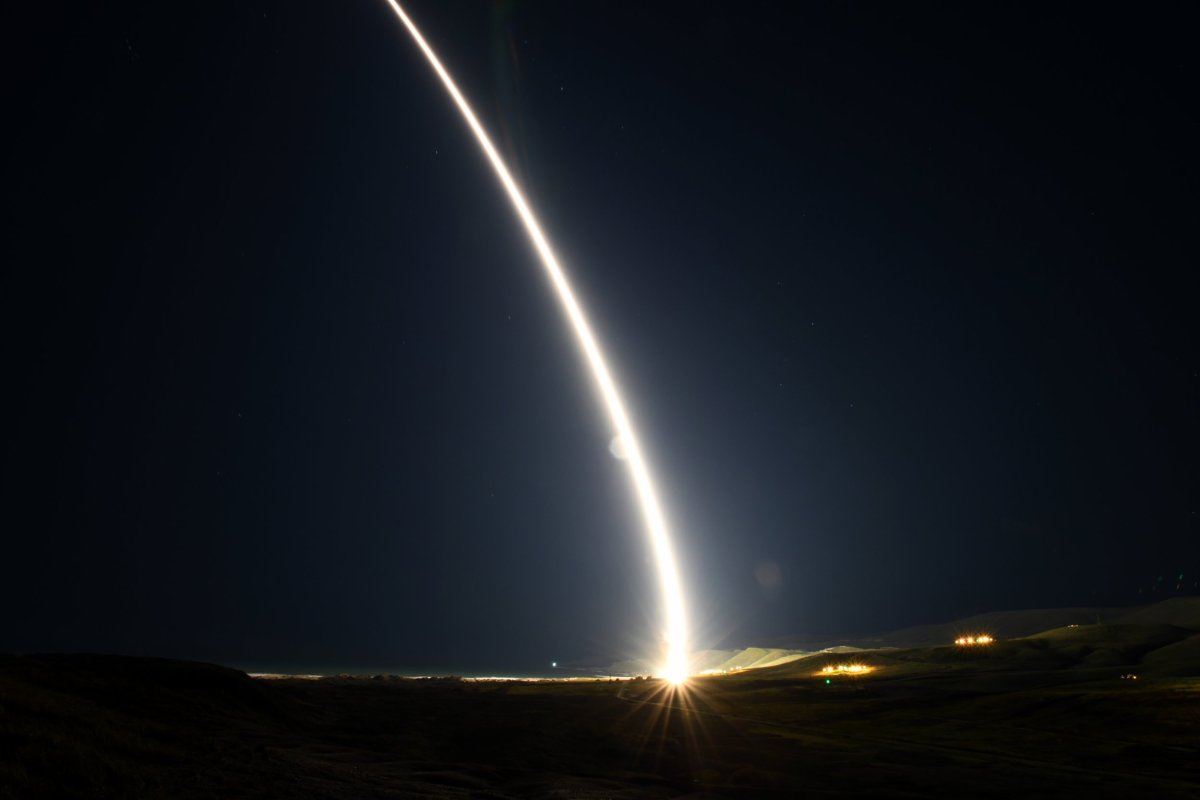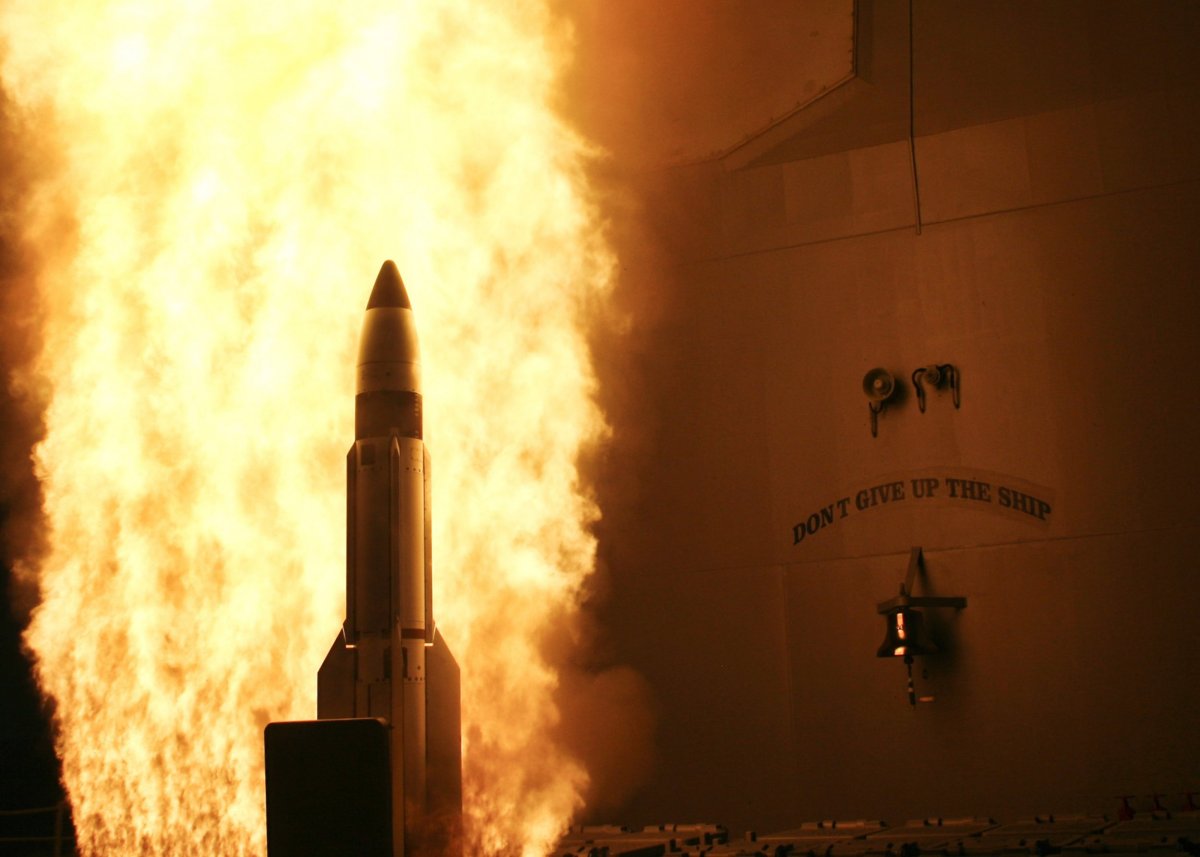The United States has blamed Russia and China for militarizing space, while refusing to sign their joint proposal for placing weapons there.
Amid ongoing disarmament talks in Geneva, Assistant State Secretary of Arms Control, Verification and Compliance Yleem Poblete asked Tuesday how the U.S. could "trust Russian arms control efforts and their seriousness about preventing an arms race in outer space when they have touted the development and completion of a broad array of counterspace capabilities." She then added, "similar to Russia, it is difficult to determine the truthfulness of China's concern about the prevention of an arms race in space and their support for space arms control."
The U.S. has accused both countries of pursuing anti-satellite weapons and laser weapons, among other offensive capabilities that could bring a future battlefield beyond the bounds of the planet. Just down the hall, a group of United Nations experts met specifically to discuss "the prevention of an arms race in outer space," but Washington has refused previous plans put forth by Moscow and Beijing on the matter.
On Wednesday, Russia and China responded to Poblete's remarks, arguing that the U.S. stood in the way of achieving non-proliferation in space.

Addressing the disarmament conference in Geneva on Wednesday, Russian Foreign Minister Sergey Lavrov accused Washington of refusing to even begin negotiations on Moscow and Beijing's joint draft Prevention of an Arms Race in Outer Space treaty. The two countries first released the proposal in 2008 and amended it in 2014, but it was rejected both times by the U.S.
"For the second decade, we hear only excuses," Lavrov said. "They say, the development of a treaty is 'a long-term issue,' it is premature to begin negotiations before there is a real threat of launching weapons into space, and it is generally impractical to establish a legally binding ban."
"Meanwhile, the U.S. has already allocated funds to establish a space segment of the air defense system and deployment of the space strike weapons," he added. "Apparently, this segment will have the ability to hit, among other things, objects in space. Thus, a real combat structure will be built, ready at any time to cleanse outer space from the orbital property of countries that Washington does not like."
Chinese Foreign Ministry spokesperson Geng Shuang also defended the joint Russian-Chinese draft, telling members of the press Wednesday that China "has never and will never participate in any form of arms race in the future." He argued, however, that "the United States has publicly positioned outer space as a new battlefield" as it "has established a space command, is building a space force and plans to deploy laser weapons in outer space," making it "self-evident who is intensifying the risk of weaponization and militarization of outer space."
"In fact, [the U.S.] is looking for an excuse to seek unilateral military superiority and to carry out the research and development of advanced weapons. The U.S.'s false accusations against China are simply untenable and China will not accept it," Geng added, calling on Washington to join in on Moscow and Bejing's efforts for arms control in space.

The concepts of "space race" and "arms race" helped shape the global feud between the U.S. and the Soviet Union throughout the Cold War. China too joined the fray as it developed its own fledgling nuclear and satellite programs in the 1960s and beyond.
At a time of renewed "great power" competition, Russia and China have witnessed historic cooperation in their space programs and have bolstered their bilateral defense ties in the face of what they consider to be a hegemonic U.S. military presence around the world. The Pentagon has responded negatively, seeking to ensure its strategic dominance by pushing for even higher spending on the future of warfare, and President Donald Trump has largely obliged.
The president has commissioned the development of a U.S. Space Force and, in January, unveiled his 2019 Missile Defense Review, which included plans for space-based interceptors, among other ambitious measures designed to "detect and destroy any missile launched against the United States anywhere, anytime." Russia and China immediately accused the U.S. of trying to launch a costly "arms race" in space, a challenge they sought to avoid.
Uncommon Knowledge
Newsweek is committed to challenging conventional wisdom and finding connections in the search for common ground.
Newsweek is committed to challenging conventional wisdom and finding connections in the search for common ground.
About the writer
Based in his hometown of Staten Island, New York City, Tom O'Connor is an award-winning Senior Writer of Foreign Policy ... Read more
To read how Newsweek uses AI as a newsroom tool, Click here.








